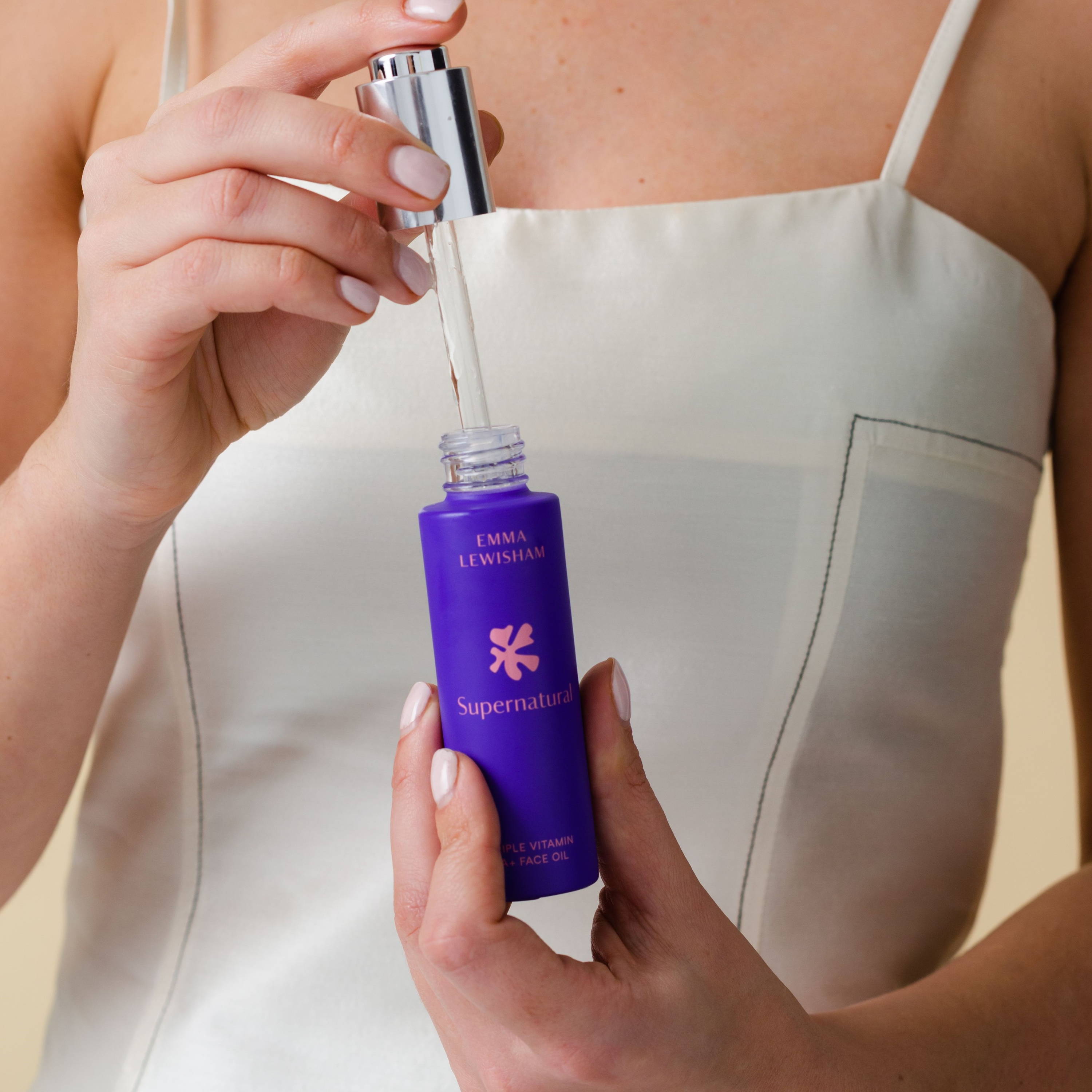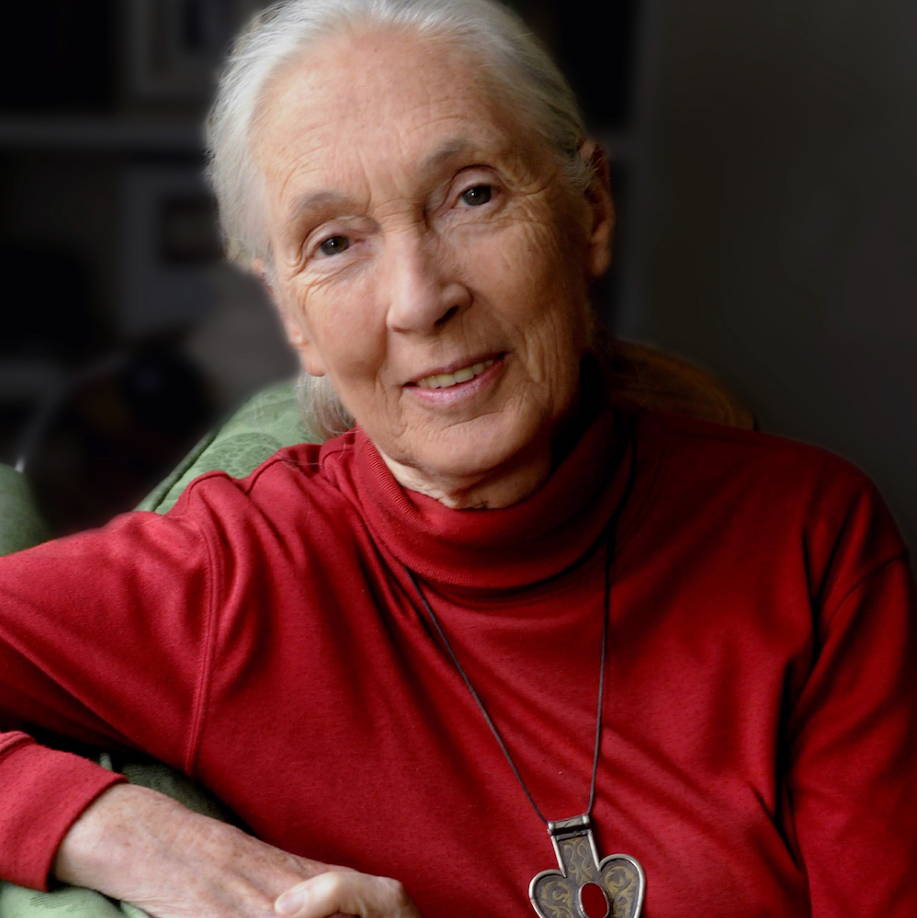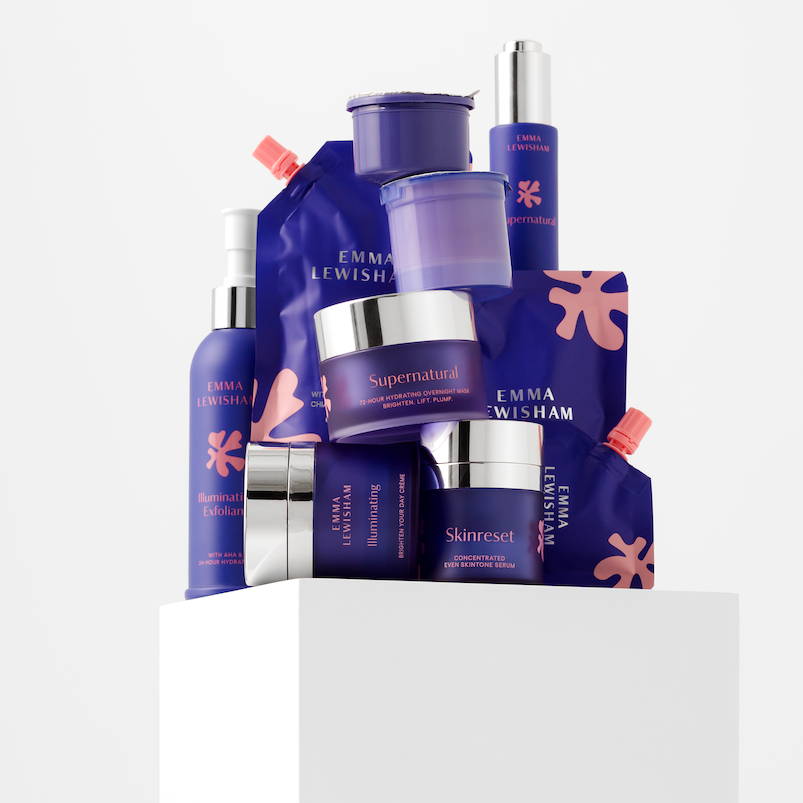Welcome to the future of beauty
- 4th October 2021 -
#beauty
In a world-first for a beauty brand, Emma Lewisham proudly announces today its carbon positive product range and 100% circular designed business model. Today, Emma Lewisham will also publicly release its IP for its 100% circular designed product packaging and carbon positive model, enabling small and large competitors alike to capitalise from Emma Lewisham’s investment and to start making widespread change within the beauty industry.
The beauty industry currently produces 120 billion units of waste every year, with the majority of this being non-recycled; this has the largest impact on the industry’s carbon emissions. Emma Lewisham’s circular, carbon positive business model is the only viable solution to the beauty industry meeting global climate targets.
Furthermore, to validate these world-first achievements, Emma Lewisham has gained written endorsement from iconic environmentalist, ethologist and United Nations Messenger of Peace, Dr Jane Goodall – who is proud to globally support these industry-shifting efforts.
Dr Jane Goodall says, “New Zealand beauty brand, Emma Lewisham, is demonstrating what it means to be a truly sustainable business. Through their carbon positive and circular business model, Emma Lewisham is creating environmental prosperity and showing their peers that this business model is not just possible but paramount if we are to make a meaningful difference.”
Scientifically backed, 100% natural skincare brand from New Zealand, Emma Lewisham has been committed to finding carbon positive and circular solutions to address the beauty industry’s waste and pollution problems since its inception in 2019.
CARBON POSITIVE AT PRODUCT LEVEL
Emma Lewisham spent 12 months working with world- leading independent environmental certification agency, Toitū Envirocare, to measure the carbon emissions emitted at each stage of its product’s lifecycle and have the brand independently verified as carbon positive at a product level. Emma Lewisham went further than accounting and compensating for the product footprint to achieve full Toitū climate positive product certification.
The brand sought to measure its emissions throughout its entire supply chain, including the harvesting and production of raw ingredients used, transportation, product packaging and end-of-life for each product in order to put reduction plans in place before positively offsetting what could not be reduced. Aligning with the urgent objective of the United Nations 2015 Paris Agreement of halving CO2 emissions by 2030 and reaching net-zero by 2050, when it came to offsetting, Emma Lewisham was clear that it did not just want to neutralise its impact; it wanted to create a positive one as the future of sustainability lies in regeneration. Emma Lewisham decided to offset its remaining emissions by an additional 25% to become the world’s first beauty brand to be verified carbon positive at a product level.
Emma Lewisham has allocated 75% of its carbon offset credits to regenerating New Zealand’s Puhoi Forest Reserves, 12.5% to supporting Gyapa’s Cook Stoves technology in Ghana and 12.5% to Malya’s Wind Power Project in India.
Measuring its emissions at a product level has allowed Emma Lewisham to assign a carbon number to each product - showing exactly how many kilograms of carbon (kgCO2e) is emitted to make each individual product. All of Emma Lewisham’s products are manufactured using 100% renewable energy.
All of Emma Lewisham’s products are refillable and 100% designed to fit within a circular system, which is the pinnacle of sustainable achievement. “Circular designed” means designing out waste, keeping materials in use through reuse, repair and recycling, and regenerating the environment. It is no longer acceptable for brands to claim recyclability and rely on differentiating local curbside recycling programs. Packaging is the beauty industry’s number one contributor to carbon emissions, and by moving to a circular model, beauty brands could lower their carbon emissions by 70%.
Emma Lewisham has invested heavily into the research and development of innovative packaging, machinery and business processes that allow each product to be refilled and to ensure packaging end of life is kept in circulation and diverted from landfill.



